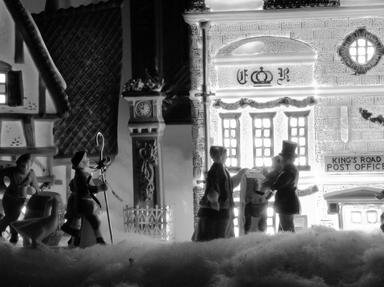Quiz Answer Key and Fun Facts
1. Miss Mowcher ("David Copperfield") marries Uriah Heep ("David Copperfield"). Which statement will be most correct?
2. Lady Dedlock's maid Hortense ("Bleak House") is about to stand up to Mr. Bumble ("Oliver Twist"), what happens next?
3. In what way is Serjeant Buzfuz ("Pickwick Papers") serving Miss Havisham ("Great Expectations")?
4. Kit Nubbles ("The Old Curiosity Shop") has encountered Jack Dawkins ("Oliver Twist") both in the course of their employment and is sounding the alarm! What was Jack more commonly called?
5. Mr. Nickleby ("Nicholas Nickleby") and Mr. Wopsle ("Great Expectations") are treading the boards together. How did they earn their wages before becoming acolytes of Thespis?
6. Here's a pedagogical hodgepodge! Which name does not belong with this group: Mr. Speers, Mr. Sharp, Mr. Mell, Miss Peecher, Mr. Blimber, Mr. Headstone?
7. There are jumbled references to "The Start", "The Gate", "X's Hall", "The Steel", and "The Tench." To what do these names refer?
8. A close look at London Bridge reveals these characters, but one does not belong with the others.
9. The characters are enjoying a progressive feast where the first course is thin gruel with an onion and half a roll; the second course is chops, vegetables, potatoes, pudding and ale; the main course is roast goose, stuffing, gravy, potatoes, apple-sauce, pudding, apples and oranges, and a shovel-full of chestnuts; dessert is a rotted bride-cake. Who is hosting each course?
10. It's a Dickensian Beauty Contest! Who will win?
Source: Author
sidnobls
This quiz was reviewed by FunTrivia editor
agony before going online.
Any errors found in FunTrivia content are routinely corrected through our feedback system.
